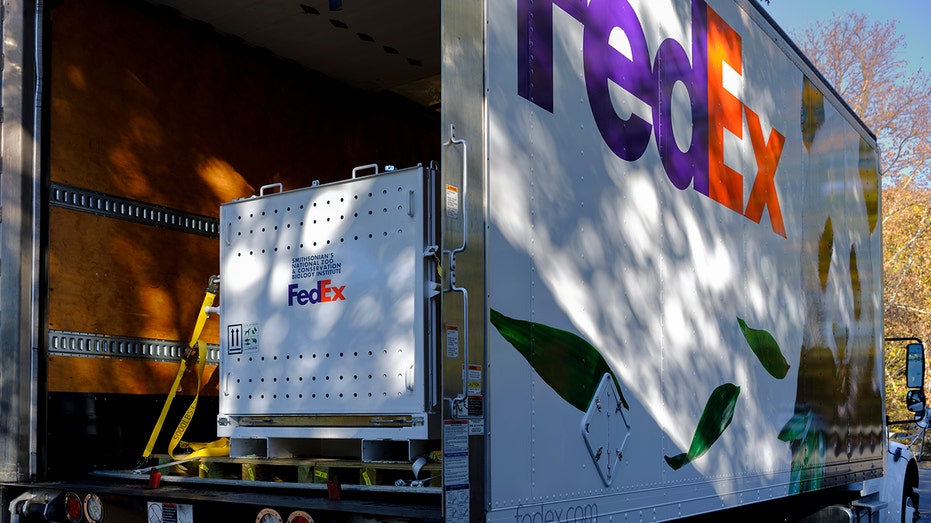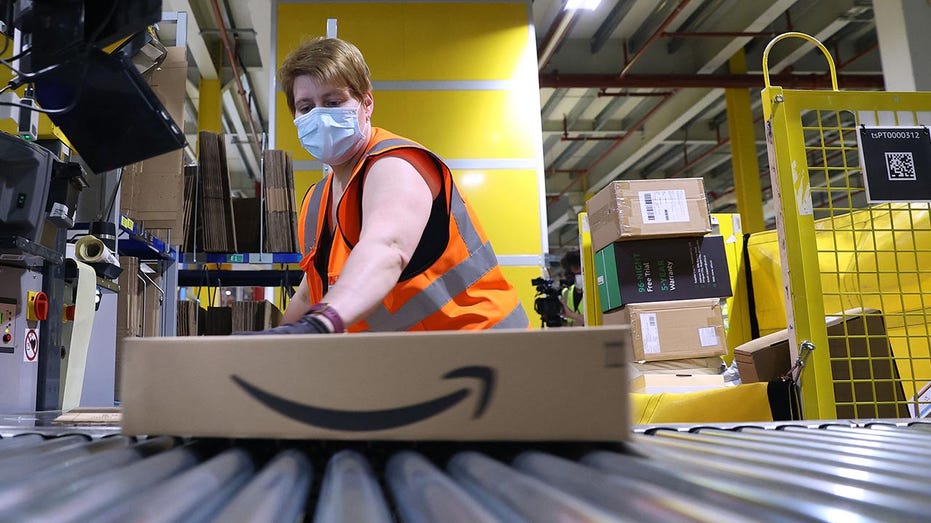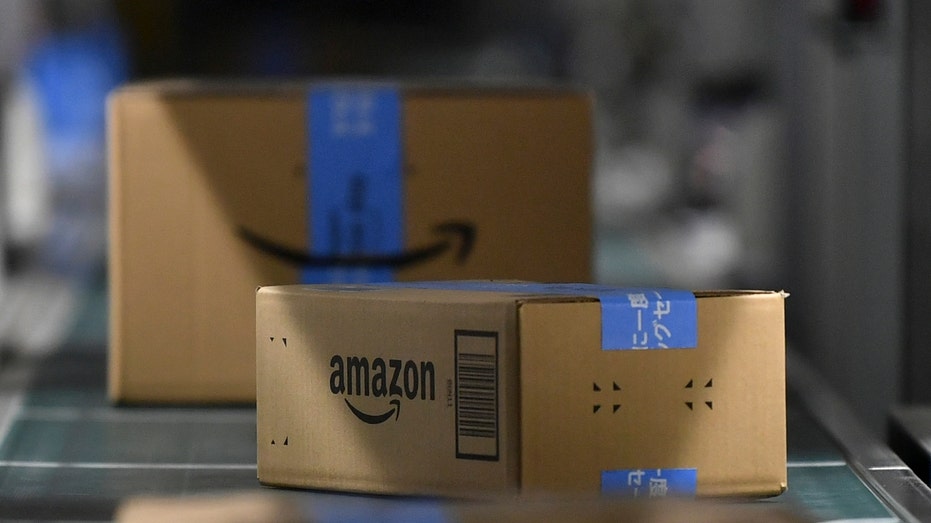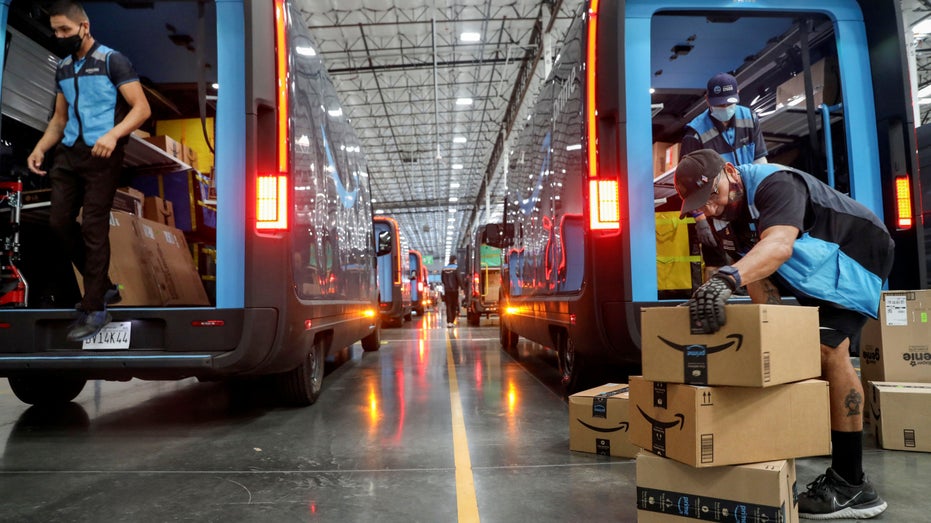The biggest delivery business in the U.S. is no longer UPS or FedEx
Amazon is eclipsing both carriers, and the gap is growing
Amazon is the 'No. 1 pick' for large capital: Mark Mahaney
Evercore ISI senior managing director Mark Mahaney says other top stock picks include Meta, Uber and Doordash.
Amazon.com has grabbed the crown of biggest delivery business in the U.S., surpassing both UPS and FedEx in parcel volumes.
The Seattle e-commerce giant delivered more packages to U.S. homes in 2022 than UPS, after eclipsing FedEx in 2020, and it is on track to widen the gap this year, according to internal Amazon data and people familiar with the matter. The U.S. Postal Service is still the biggest parcel service by volume; it handles hundreds of millions of packages for all three companies.
| Ticker | Security | Last | Change | Change % |
|---|---|---|---|---|
| AMZN | AMAZON.COM INC. | 210.32 | -12.37 | -5.55% |
| UPS | UNITED PARCEL SERVICE INC. | 117.34 | +0.79 | +0.68% |
| FDX | FEDEX CORP. | 369.23 | +5.27 | +1.45% |
A decade ago Amazon was a major customer for UPS and FedEx, and some executives from the incumbents and analysts mocked the notion that it could someday supplant them. Amazon’s outsize growth combined with strategy shifts at FedEx and UPS have changed the balance.
AMAZON LOOKING TO HELP 2M PEOPLE GROW THEIR AI SKILLS
Before Thanksgiving this year, Amazon had already delivered more than 4.8 billion packages in the U.S., and its internal projections predict that it will deliver around 5.9 billion by the end of the year, according to documents viewed by The Wall Street Journal. Last year Amazon shipped 5.2 billion packages.
Amazon’s figures include only packages that Amazon shipped from beginning to end. UPS and FedEx include packages they hand off to the postal service for final delivery in their tallies.
AMAZON WEB SERVICES CEO SAYS AI WILL ‘BE USED FOR TREMENDOUS GOOD’
UPS has said that its domestic volume this year is unlikely to exceed last year’s 5.3 billion, which includes packages delivered to customers through the postal service. In the first nine months this year, UPS handled around 3.4 billion parcels domestically.
FedEx’s domestic Express and Ground parcel volume reached around 3.05 billion for the fiscal year ended May 31, 2023.

A FedEx truck that transported one of the pandas (Credit: FedEx) (FedEx)
As Amazon’s share of deliveries has increased, FedEx and UPS have said in recent years they weren’t in a race for volume and were instead focused on delivering more profitable parcels. FedEx parted ways with Amazon in 2019. Amazon accounts for about 11% of UPS’s revenue.
The logistics milestone came without any fanfare from Amazon, which is the subject of a lawsuit from the Federal Trade Commission over the way it competes.
AMAZON WILL NOW FIRE WORKERS WHO REFUSE TO RETURN TO THE OFFICE THREE DAYS A WEEK
"There’s not a lot of perceived value in chest thumping on being the biggest," said a former senior Amazon logistics executive about the milestone. Instead of a celebration marking the jump on the leaderboard, Amazon executives high-fived and got back to work, one recalled.
Overall parcel volume has dipped this year, as consumers cut back on spending on goods and diverted their expenditure to services, travel and entertainment.
AMAZON TO SELL HYUNDAI VEHICLES ONLINE BEGINNING NEXT YEAR
Amazon’s rise to the top carrier was once viewed as farcical by logistics CEOs. In 2016, FedEx’s then-CEO Fred Smith dismissed the notion of Amazon becoming a threat to the logistics giant as "fantastical." "In all likelihood, the primary deliverers of e-commerce shipments for the foreseeable future will be UPS, the U.S. Postal Service and FedEx," Smith said at the time.

An employee prepares a package for shipment at the Amazon logistics centre in Suelzetal near Magdeburg, eastern Germany, on Mai 12, 2021. - The US online sales giant had opened the new warehouse in Saxony-Anhalt in August 2020. (Photo by Ronny Hartma ( RONNY HARTMANN/AFP via Getty Images / Getty Images)
At the time of Smith’s comments, Amazon was in a distant third place behind UPS and FedEx. But the company in the subsequent years made up the ground, building out one of the largest logistics networks in the world.
In 2018, Amazon launched a program where entrepreneurs could start their own franchise delivering Amazon packages for as low as $10,000. It has similarities to FedEx’s Ground unit, which also uses a contractor model for local routes. The Amazon program has around 200,000 drivers in the U.S., helping the company rapidly accelerate the number of packages it was able to deliver each day, say former executives.

This picture taken on July 4, 2022 shows packed products at Amazon Amagasaki Fulfillent Center in Amagasaki, Hyogo prefecture. ((Photo by KAZUHIRO NOGI/AFP via Getty Images) / Getty Images)
Early in the pandemic, Amazon saw a pivotal moment to expand its e-commerce reach. The company opened hundreds of new warehouses, sorting centers and other logistics facilities, almost doubling the size of its network between the start of the pandemic and late 2021. The build out was led largely by Amazon’s former CEO of consumer, Dave Clark, who before that role was a major architect of Amazon’s logistics network.
AMAZON CEO ON STAFF RESISTING RETURN TO THE OFFICE: ‘PROBABLY WON’T WORK OUT’ FOR THEM
Amazon has moved to regionalize its logistics network to reduce how far packages travel across the U.S. in an effort to get products to customers faster and improve profitability. "These delivery speed improvements have been a key driver of growth and are resulting in increased purchase frequency by our Prime members," said Amazon CFO Brian Olsavsky in a recording of a companywide meeting earlier this month heard by the Journal.
AMAZON LOOKING TO HELP 2M PEOPLE GROW THEIR AI SKILLS
An Amazon spokeswoman said its delivery progress is due in large part to the route franchise program. The company will continue to work with other delivery partners and carriers to help handle additional capacity, she added.
FedEx said it is focused on the e-commerce market beyond Amazon. "Our strategy is to democratize e-commerce," said a spokeswoman from FedEx. She added that FedEx has taken market share in segments of the U.S. domestic package market this calendar year.

Workers load packages into Amazon Rivian electric trucks at an Amazon facility in Poway, Calif.,, Nov. 16, 2022. (Reuters/Sandy Huffaker / Reuters Photos)
In recent years, UPS leaned into higher-margin parcels from other customer segments, including healthcare and smaller businesses, and has pared back capacity for less-profitable deliveries to residential addresses. A UPS spokesman said, "Amazon is an important customer and our relationship is mutually beneficial."
GET FOX BUSINESS ON THE GO BY CLICKING HERE
While Amazon has surpassed both companies on residential delivery, it has yet to replicate their global coverage or the flip side of their operations. "Amazon is very good at the one-way network, delivering goods at faster speeds but it doesn’t have the same level of pick-up and delivery coverage," said Brian Ossenbeck, an analyst at JP Morgan.




















